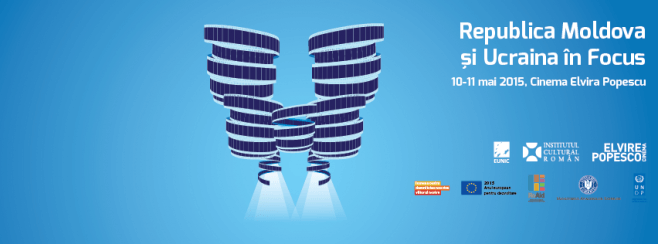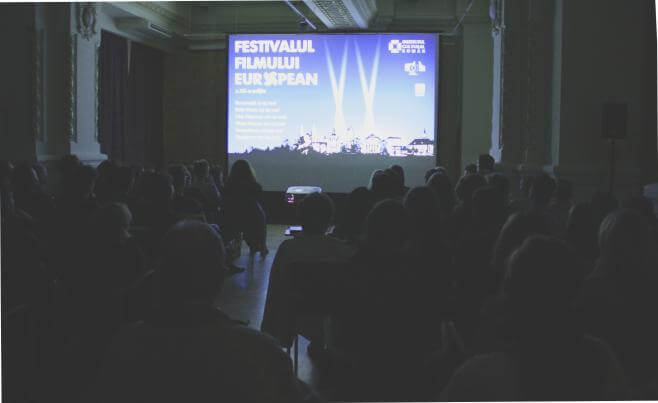
During the European Film Festival 2015, the EUNIC Bucharest Cluster has supported a special two-day focus on the filmmaking from the Ukraine and Republic of Moldova. With the contribution of several cultural institutes (the Austrian Cultural Forum, the Czech Center, the French Institute, the Romanian Cultural Institute and the Polish Institute) and with the support of the UNDP regional office for Europe and Central Asia, 7 productions were screened at Cinema Elvire Popesco.
This event aimed to improve the presence of the Ukrainian and Moldavian film industry on the international stage, but also to reinforce the EU cultural initiatives in these the non-EU member countries, in order to offer best practices to the EUNIC Cluster in Ukraine and to support the creation of a new EUNIC Cluster in the Republic of Moldova. Indeed, their strategical position represents a major issue within the European Neighborhood Policy.
The focus was targeted towards a large audience in Bucharest, from young people to elder movie fans. With a number of almost 250 spectators in total, the goal was reached (as it also was during the Cronograf festival in Republic of Moldova and the Molodist international festival in Ukraine). This was achieved thanks to a good communication strategy, achieved both internally, externally, among the media partners but also nearby the general public, though printed and electronic materials, but also posts and updates on the social media sites. Furthermore, most of the movies were accompanied by Q&A sessions, with the presence of the following producers:
- The Gipsy Baron: producers Michaela Ronzoni, Antony Jacobson, Oleg Diordiev
- Chisinau and Kiev: producers and directors: Miroslaw Dembinski and Miroslawa Dembinska
- Arrivederci: director and producer: Valeriu Jereghi
On the 11th of May, a discussion panel on film production took place in collaboration with UNATC and the internet platform All About Romanian Cinema. Around 50 persons participated at the panel, along the guests: Michaela Ronzoni, Antony Jacobson, Oleg Diordiev, Olga Zhurzhenko, Miroslaw Dembinski, Miroslawa Dembinska, Valeriu Jereghi, Cristina Flutur, Alex Traila and Ada Solomon.
Through this special focus, we haven’t only accentuated the presence of EU cultural initiatives in the Ukraine and the Republic of Moldova by offering a common platform of communication on filmmaking through the European Film Festival, but we also gave them the opportunity to present some of the best productions made in these countries situated at the borders of the European Union.



